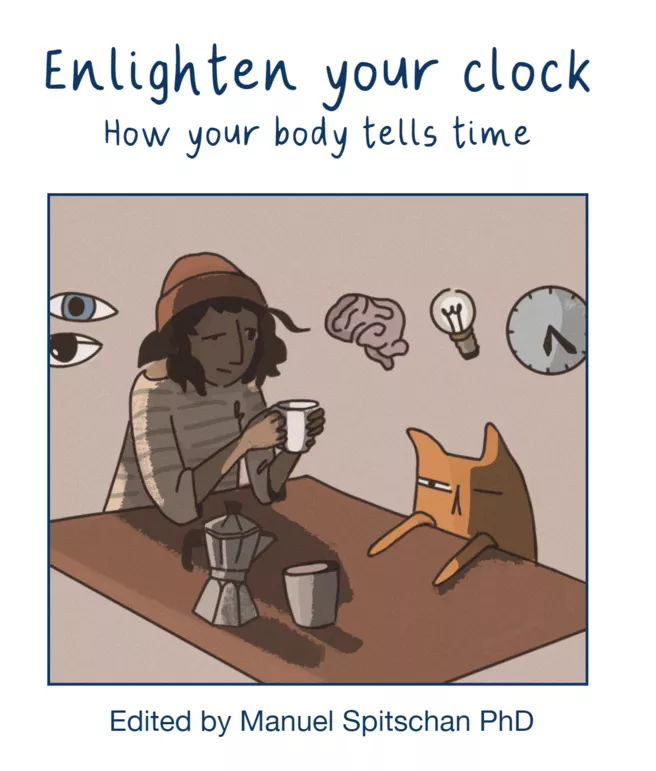In Germany, almost every tenth person suffers from sleep problems. There are many reasons for this - stress, disturbances of the biorhythm, even sport in the evening can lead to difficulties falling asleep.
Prof. Dr. Manuel Spitschan heads the Assistant Professorship of Chronobiology & Health at the Department of Sport and Health Sciences at the Technical University of Munich. In this role, the neuro and health scientist focuses on the effects of light on the human internal clock (circadian rhythms) and how these findings can be used to improve health and well-being within society. In addition, he leads the Max Planck Research Group Translational Sensory and Circadian Neuroscience at the Max Planck Institute (MPI) for Biological Cybernetics Tübingen.
His research results have been published in many renowned journals and have provided important insights for the fields of sleep medicine, neuroscience and environmental physiology.
On the occasion of World Sleep Day on March 17, 2023, Prof. Spitschan gives helpful tips on how to get a better night's sleep and start the day more actively and healthily.
Prof. Dr Manuel Spitschan on...
...the effect of sport on sleep:
"Sport and exercise have a positive effect on sleep and can both prolong sleep duration and improve sleep quality. It should be emphasized that sport in general has positive effects on our health that are not specific to sleep. But there are indirect effects of exercise on sleep: Weight loss can reduce symptoms of sleep apnoea, for example. There is also evidence that the effect of exercise and sport depends on the time of day. In any case, exercise should be avoided 1.5 hours before going to bed in order to compensate for changes in body temperature caused by exercise."
...sleep routines:
"A sleep routine is important. This includes keeping regular bedtimes and wake-up times, creating a comfortable sleeping environment and not eating before going to sleep. Alcohol, coffee and smoking in particular are counterproductive. This also includes using the bed only for sleep and ideally banning smartphones, tablets, TVs and laptops from the bedroom."
...the effects of light on sleep:
"There are nerve cells in our eyes that tell our internal clock when it is day and when it is night. These nerve cells are sensitive to light and do not depend on photoreceptor signals, such as the rods and cones we know from biology. These nerve cells, abbreviated as ipRGCs (intrinsically photosensitive retinal ganglion cells), respond in particular to blue light. Our internal clock, which is located in the suprachiasmatic nucleus (SCN) in the brain, is influenced by the activity of the nerve cells in the eye. As a result, light in the evening sets the hand of our inner clock backwards and thus also has an effect on sleep. Light at night, such as in a bedroom illuminated by streetlights and not darkened, can have negative effects. Therefore, the recommendation is to close roller blinds as well as curtains, and if this is not possible, wear a light-proof sleeping mask."
...light sources that influence sleep:
"Mobile phone use in the evening also influences the nerve pathway that regulates the inner clock. Mobile phone displays also affect the nerve cells (ipRGCs). In addition, however, there are other psychological factors that make mobile phone use attractive to us. Apps like Facebook, WhatsApp, Twitter or YouTube exploit psychological mechanisms that keep us 'glued' to the mobile phone. This can also lead to us falling asleep later or worse. In general, it is recommended to stop using smartphones and tablets two hours before sleep and make this part of the sleep routine."
...eating habits that can affect sleep:
"There is a simple rule of thumb: Breakfast should be eaten within an hour of getting up, lunch just under five hours after and dinner again five hours later. This is not realistic for many people, so it is a good idea to have a healthy snack between meals. There is also the approach of intermittent fasting. This involves eating no calories or very few calories for a long period of time. In any case, avoid going to bed with an empty or full stomach. Midnight snacks should also be avoided, as calories consumed in the evening are largely converted into fat."
To the homepage of the Assistant Professorship of Chronobiology & Health
To the MPI podcast with Prof. Dr. Manuel Spitschan
To the explanatory video of the MPI with Prof. Dr. Manuel Spitschan
To the science comic "Our inner clock" by Coline Weinzaepflen and Prof. Dr. Manuel Spitschan
Contact:
Prof. Dr. Manuel Spitschan
Assistant Professorship of Chronobiology & Health
Georg-Brauchle-Ring 60/62
80992 München
phone: 089 289 24544
e-mail: manuel.spitschan(at)tum.de
Text: Bastian Daneyko
Photos: private

